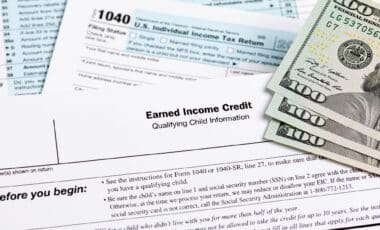Pensioners have encountered an unforeseen financial setback, as newly disclosed figures reveal the imposition of an “emergency” income tax bill, reaching as high as £55,000 for some individuals, subsequent to their pension fund withdrawals.
Pension Freedom Reforms: Unintended Tax Challenges for Retirees
Since the introduction of the “pension freedom” rules in 2015, thousands of pensioners have collectively been overcharged by more than £1bn by HM Revenue & Customs. The reforms, while allowing savers flexibility in withdrawing extemporary amounts from their pensions, have led to emergency tax rates being applied erroneously, assuming a recurring monthly withdrawal.
As a consequence, savers find themselves significantly overtaxed, necessitating the pursuit of refunds or awaiting system corrections. The 100 largest HMRC refunds averaged £54,185, showcasing the extent of the financial impact on affected individuals. Furthermore, the average refund for the 2022-2023 tax year stood at £3,062, indicating a widespread and ongoing issue affecting pensioners.
This situation highlights the unintended consequences and complexities that can arise from well-intended regulatory changes in the financial landscape, impacting the financial well-being of pensioners navigating their retirement plans.
Retiree Tax Refunds: Unravelling the Complexities of Overpaid Pension Taxes
Approximately 2,300 pensioners have successfully reclaimed sums exceeding £10,000 in overpaid taxes, with another 300 securing refunds surpassing £15,000, and nearly 9,700 claiming amounts exceeding £5,000 each.
Upon reaching the age of 55, retirees are granted the right to withdraw a tax-free lump sum from defined contribution pots. However, the taxation system operates under the assumption that a one-off withdrawal will be replicated monthly. Consequently, an individual withdrawing £10,000 faces taxation as if the annual withdrawal amounted to £120,000.
The intricacies of the tax system become evident when an individual withdraws £30,000 from their pension. Despite receiving a tax-free sum of £7,500, they are subsequently taxed as if their monthly income were £22,500, resulting in emergency income tax of £8,503, according to Royal London.
If the 20% basic rate were applied, only £1,984 would be due, leaving an additional £6,519 that must be reclaimed. The process of refunding overpaid money can extend over several months unless the taxpayer actively requests a refund, as the taxman initiates a review of income tax codes only at the end of the tax year.
Clare Moffat, from Royal London, points out, “The pension savers charged over £50,000 in emergency tax will of course be extreme cases. To trigger a tax bill of this size, they will have taken out a lump sum in excess of £200,000.
“There aren’t too many scenarios in which someone will need this amount, except maybe to help their children or grandchildren get a foot on the housing ladder.”
An HMRC spokesperson stated, “Nobody overpays tax as a result of taking advantage of pension flexibility.
“We will automatically repay anyone who pays too much because they’re on an emergency tax code. Individuals can claim back any overpayment earlier if they wish.”
Efficient Methods for Reclaiming Overpaid Income Tax
Reclaiming overpaid income tax can be accomplished through two primary methods. While waiting for HMRC to automatically review tax codes at the end of the tax year is an option, it may involve a prolonged wait. A more expeditious route is to complete one of three tax forms.
The “P55” form is designed for individuals who have made partial cash withdrawals from their pension. If the entire pension has been withdrawn as cash, two alternatives exist: the “P53Z” form for those still earning other income, and the “P50Z” form for those who have ceased working.
Utilizing HMRC’s online service is convenient, requiring a Government Gateway ID and password. If no ID is available, it can be created online. Alternatively, individuals can print the form, fill it out, and mail a copy to HMRC.
Upon submission of the appropriate form, HMRC aims to refund any overpaid tax within 30 days.









